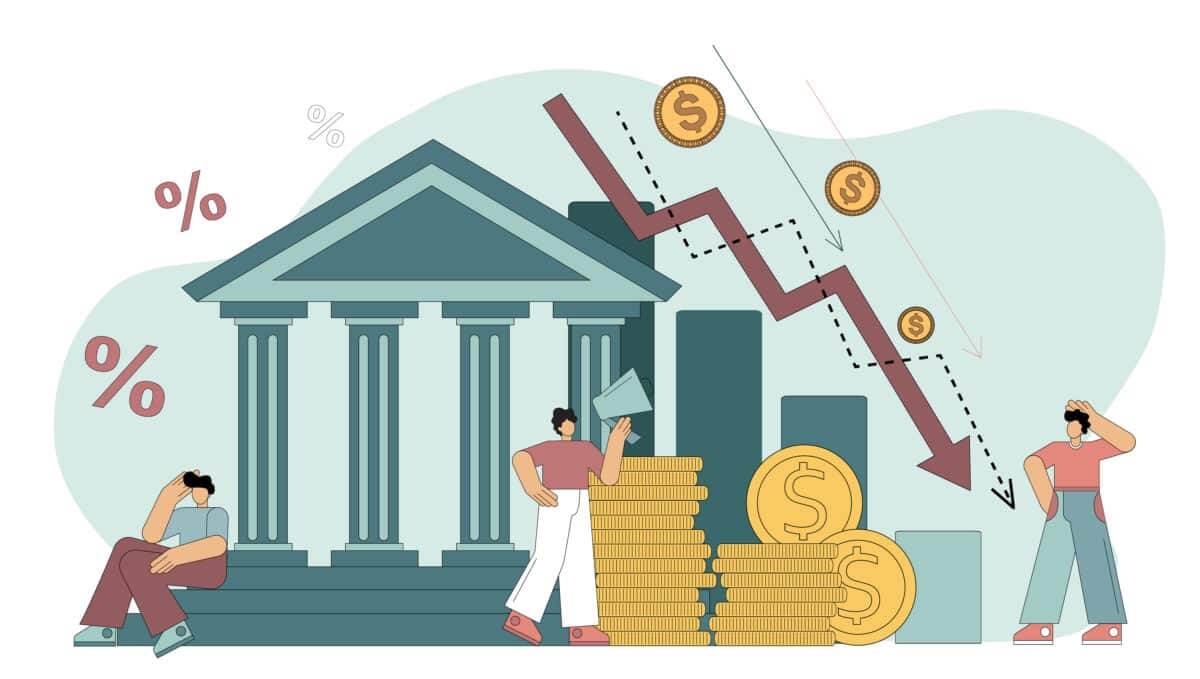
What does a Financial Crisis mean?
During a financial crisis, asset prices experience an excessive fall in value. Meanwhile, companies and customers cannot pay their debts, while financial institutions face liquidity shortages. This condition is often associated with a panic during which investors withdraw money from savings accounts or decide to sell off assets as they are afraid that the value of these assets will sink if they stay in a financial institution.
Other situations include:
- A stock market crash.
- A speculative financial bubble burst.
- A currency crisis.
- A sovereign default.
A financial crisis might differ from banks during a single economy, region’s economy, or worldwide.
KEY TAKEAWAYS
- Banking fears during several financial crises: 19th, 20th, and 21st centuries. Many of them led to depressions or recessions.
- Examples: credit crises, stock market crashes, sovereign defaults, the financial bubble burst, and currency crises.
- A financial crisis has the potential to spread regionally and globally.
The Causes of a Financial Crisis
It might have multiple causes. Generally, overvalued institutions or assets can cause a crisis. Irrational or herd-like investor behavior can also exacerbate it. For example, a fast string of selloffs can lower asset prices, urging individuals to drop assets or make withdrawals of massive savings. Those situations happen when investors hear a rumor of a bank failure.
Contributing factors involve:
- Systemic failures.
- Uncontrollable or unanticipated human behavior.
- Incentives to take excessive risk.
- Regulatory absence or failures.
- Contagiousness of spread of issues from one company or country to the other.
A crisis can cause an economy to go into depression or recession. Besides taking early measures to avert a financial crisis, it can still accelerate or worsen.
Examples
Crises in the financial industry are not surprising and unusual; such crises have happened since the world started to use the currency.
Several well-known financial crises are:
- Tulip Mania (Dutch Golden Age – 1637): Some historians believe that it did not have a severe influence on the Dutch economy, and hence it shouldn’t be counted as a financial crisis. But it followed an outbreak of bubonic plague, which had a strong impact on the country. Therefore, it is difficult to determine if the over-speculation or the pandemic accelerated this crisis.
- Credit Crisis (1772): After expanding credit, this crisis began in London at the beginning of 1772. a partner in a large bank, Alexander Fordyce, lost a considerable number of shares and fled from the country to avoid repayments. This panic resulted in a run-on bank that left more than 21 large banking houses bankrupt. It also resulted in stopping payments to investors and creditors. The crisis soon spread to many other countries in Europe. Historians make connections of this crisis to the origin of the Boston Tea Party, resulting in a crisis that caused the American Revolution.
Some other important global crises include:
- The stock crash in 1929 that led to the Great Depression, felt worldwide for over several years. Its social impact lasted far longer.
- 1973 OPEC Oil Crisis.
- Asian Crisis between 1997–1998.
- The 2007-2008 Global Financial Crisis was the worst economic collapse since 1929. It started in 2007 and developed into a global banking crisis with the collapse of Lehman Brothers in 2008.
The Worst Crisis
Arguably, the worst financial crisis in the last century was the Global Financial Crisis in 2008, sending stock markets collapsing, consumers struggling, and financial institutions into ruin.
-
Support
-
Platform
-
Spread
-
Trading Instrument




